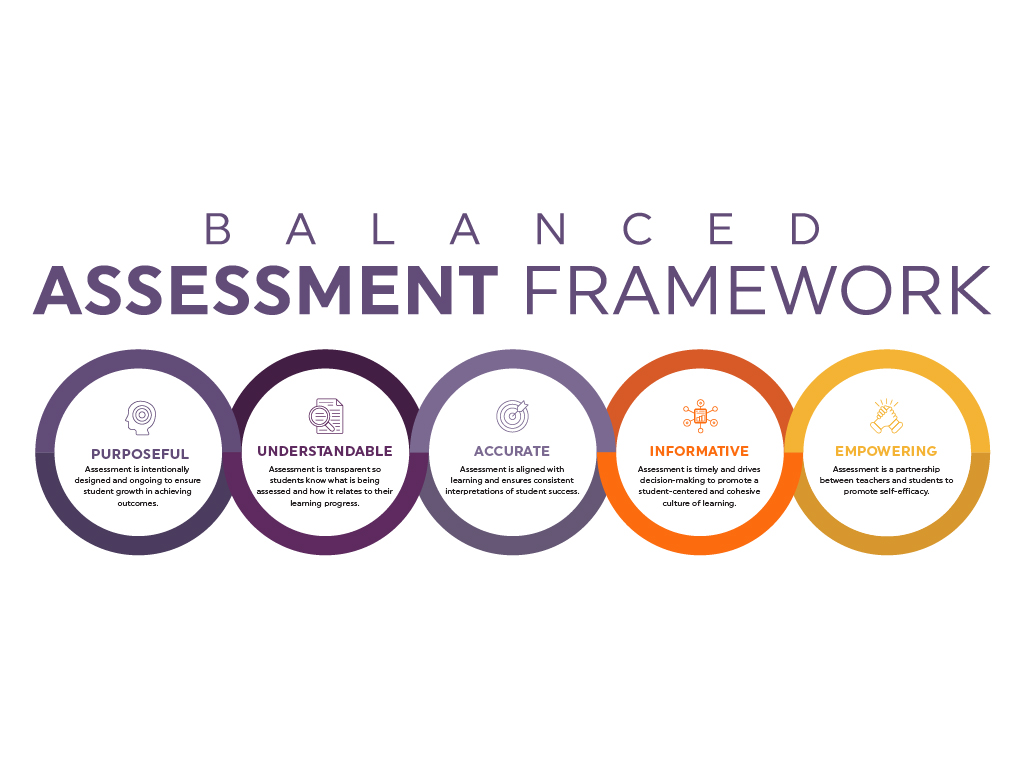When you hear the word assessment, what comes to mind for you? Likely, you are imagining a quiz, or a test, or some other event where you had to prove that you had learned something. Our background knowledge of assessment comes from our own experiences in school. When you think back to your time in school, what kind of student were you? Straight A student? C+? Barely passing? How accurately did this grade represent who you are as a learner and what you retained from each course?
For many of us, school was a game of scoring points while the assessments were the playing field. But isn’t the purpose of education to prepare students for the world of work? Well, if that’s the case, most of us would be out here writing tests to prove our competence to our boss.
Of course, that’s not the case.
One of the goals of our 2018-2021 strategic plan was for students to surpass their potential. To do this, our community advocated to change the traditional narrative of assessment and reporting which meant a shift in our thinking around their purpose. If assessment could be used as more of a tool than a test, and reporting as a meaningful communication of that learning, we know that our students will truly be prepared for life after school.
But why disrupt the narrative? After all, aren’t tests and grades what motivate students to learn? Well, no. As it turns out, grades merely motivate students to avoid intellectual risk to ensure they can maintain a high mark. What drives learning is challenge. While this is not a new revelation and has been demonstrated in academic research, this fact gained widespread attention during the COVID-19 pandemic. With tests and grading put on pause, teachers and students alike felt liberated to engage in deeper learning and build more sophisticated 21st century skills. This collective experience prompted Maclean’s magazine to challenge Canadian universities to go gradeless, and The Washington Post to proclaim the end of America’s obsession with standardized testing.
In the recent community survey to build our next strategic plan, a grade 11 student summarized this need for change by stating, “People are smarter than their grades, but in a system where grades are seen to be more important than anything else, it makes students feel bad about themselves, which leads to them putting themselves down, and eventually leads to them giving up… and that’s not a good mind set/system.”
In many ways, we have been ahead of the curve at Calgary Academy. Over the past two years, a dedicated committee of CA teachers has worked to create and implement an assessment framework that aims to unleash confident and competent learners with a growth mindset. The framework promotes deeper learning for all students by establishing clear learning goals and empowering students to partner with their peers and teachers to embark on a personalized journey towards achieving them. We understand the value of clarity and flexibility for our diverse population, and the framework captures those values.
The assessment committee is now working towards creating a reporting system aligned with our new assessment framework and there are a couple ways you can get involved in this work:
- Complete a survey following the February parent/teacher conferences to capture your feedback on our current reporting system.
- Join a parent focus group to discuss how we might improve assessment and grading at Calgary Academy.
If you have any questions or concerns regarding assessment and reporting at Calgary Academy, please contact our principal, Tim Carlson, or our Assessment Instructional Design Lead, Natalie Vardabasso.
